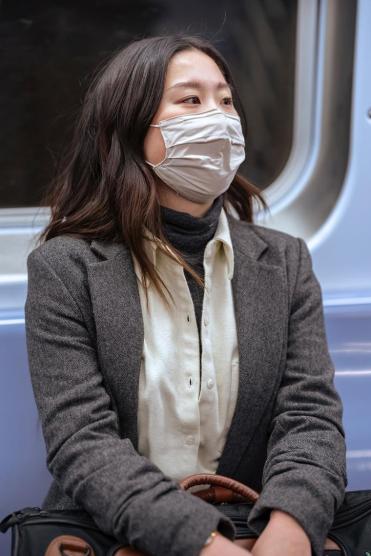- Managing your Practice
-
- Your Benefits
-

Introducing the ultimate Club MD experience
From work to play, and everything in between, we provide you with access to hundreds of deals from recognizable, best-in-class brands, elevating every facet of your life – from practice supports to entertainment, restaurants, electronics, travel, health and wellness, and more. Your Club MD membership ensures that these deals are exclusive to you, eliminating the need to search or negotiate.
Welcome to the ultimate Club MD experience. Your membership, your choices, your journey.
-
- Advocacy & Policy
-
- Collaboration
- News & Events
-

Stay Informed
Stay up to date with important information that impacts the profession and your practice. Doctors of BC provides a range of newsletters that target areas of interest to you.
Subscribe to the President's Letter
Subscribe to Newsletters
-
- About Us
-

Coping with anxiety as we return to a more normal life
October 7, 2021
Together for Health
Throughout the COVID-19 pandemic, a significant percentage of the population has experienced feelings of anxiety and depression. One poll by Mental Health Research Canada (MHRC) showed that two-in-ten Canadians have been diagnosed with an anxiety disorder or depression and overall, anxiety levels have quadrupled and depression levels have doubled.
 Since the onset of the pandemic, fear of contracting COVID-19 and the physical repercussions that could manifest, the potential to transmit the disease, along with the negative mental health impacts of social isolation and staying apart from family and friends, have contributed to our collective anxiety. And as the pandemic continued and isolation and safety measures were maintained, many adapted to what became our new “norm,” but it is taking its toll.
Since the onset of the pandemic, fear of contracting COVID-19 and the physical repercussions that could manifest, the potential to transmit the disease, along with the negative mental health impacts of social isolation and staying apart from family and friends, have contributed to our collective anxiety. And as the pandemic continued and isolation and safety measures were maintained, many adapted to what became our new “norm,” but it is taking its toll.
It’s good news that society is slowly reopening – we can eat inside restaurants, attend hockey games, travel for leisure, however the big ‘but’ is that we still have to take precautions by carrying a vaccine passport, wearing our masks in public, and keeping our distance. Along with high case counts, after 18 months we’re still not back to normal, and that knowledge keeps anxiety levels high.
For those struggling with anxiety or mental health issues, here are some coping mechanisms:
- Adjust your expectations – accept that life right now isn’t like it was before the pandemic, but it’s better than it was just six months ago.
- Take it one step at a time. There’s no need to rush into society. Instead take the time you need to slowly re-build your confidence and comfort levels, such as taking a short walk outside, meeting a friend at the park, or planning a small social gathering.
- Focus on what you can control. For example, if you’re afraid of contracting COVID-19, make sure you follow the public health orders – especially getting vaccinated – and don’t take any unnecessary risks.
- Get your information from credible sources and focus on what the evidence says. Misinformation can lead to confusion and heightened feelings of anxiety.
- Set a daily routine for yourself, one that includes waking up and going to bed at consistent times, keeping up personal hygiene, eating healthy meals, and exercising regularly.
- Take time to relax, de-stress, and unwind.
- If you feel you need additional help, seek it out early by speaking to your GP, psychologist or counsellor, other healthcare practitioner, or by accessing mental health resources.
Most importantly, if you are struggling with anxiety or mental health issues, be kind and gentle with yourself. Every one of us has been living through this crisis for the last 18 months. We have witnessed or heard about many traumatic events. It’s okay to take things slowly, one step at a time, as we re-enter social circles and start to expand our lives.
If you or someone you know is in crisis, please seek help:
Crisis Services Canada 1-833-456-4566 or text 45645
Kids Help Phone 1-800-668-6868
Centre for Addiction and Mental Health 1-800-463-2338
Open Mind BC – developed by Doctors of BC, this website acts as a portal to an abundance of tools and resources developed by a range of mental health organizations in BC and across Canada.




